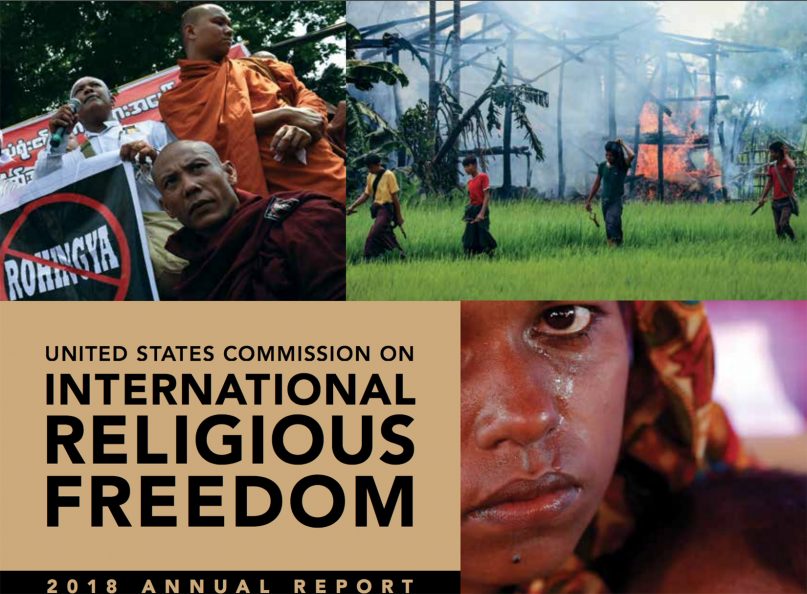WASHINGTON (RNS) — The independent religious freedom watchdog whose future was in question in recent months has been reauthorized as part of an ominbus bill President Trump signed Friday (Dec. 20).
The U.S. Commission on International Religious Freedom received funding of $3.5 million annually for the next three years after members of Congress included revised legislation about it in the 1,700-plus-page bill that they approved this week.
After Congress had adopted the bill including the authorization, USCIRF Chair Tony Perkins said he was grateful for the bipartisan support of members such as Sens. Marco Rubio, R-Fla., and Bob Mendendez, D-N.J., who created a new version of legislation after pulling the first one.
“At a time when freedom of religion is under assault worldwide, it’s encouraging that we all value the fundamental human right of allowing everyone, everywhere, to follow his or her conscience,” Perkins said in a Thursday statement.
The agency, created in 1998, had faced a range of controversies in the months leading up to the reauthorization. It is now reauthorized until September 30, 2022.
RELATED: Religious freedom watchdog, facing recent controversy, awaits reauthorization
Under the new legislation, the commissioners will be required to share their speeches with each other in advance of speaking engagements on behalf of the commission. They also must clarify when they are speaking as a private citizen that they are not representing the views of the commission. Perkins said the commissioners were “already doing that by procedure.”
Perkins said earlier this week that commissioners, who are appointed by presidents and members of Congress of both major political parties, thought an earlier proposal was an attempt “to micromanage the commission.”
In a separate development, another commissioner, Ahmad “Andy” Khawaja, informed his USCIRF colleagues on Tuesday that he was resigning. Earlier this month, the Justice Department announced that Khawaja, the founder of online payment service provider Allied Wallet, was among eight people charged with concealing “excessive campaign contributions” during and since the 2016 presidential election.
Sen. Charles Schumer, D-N.Y., who nominated Khawaja to the commission, announced Thursday that he would be succeeded by Rabbi Sharon A. Kleinbaum, a human rights advocate who leads Congregation Beit Simchat Torah in New York.
Sam Brownback, U.S. ambassador-at-large for international religious freedom, said Thursday he was pleased that USCIRF was included in the omnibus bill.
“I’m delighted that they’re getting reauthorized. They need to be reauthorized. We need ’em,” he told reporters on a conference call. “I think the independence of USCIRF is a very useful tool in this overall push for religious freedom going on now in the world.”





